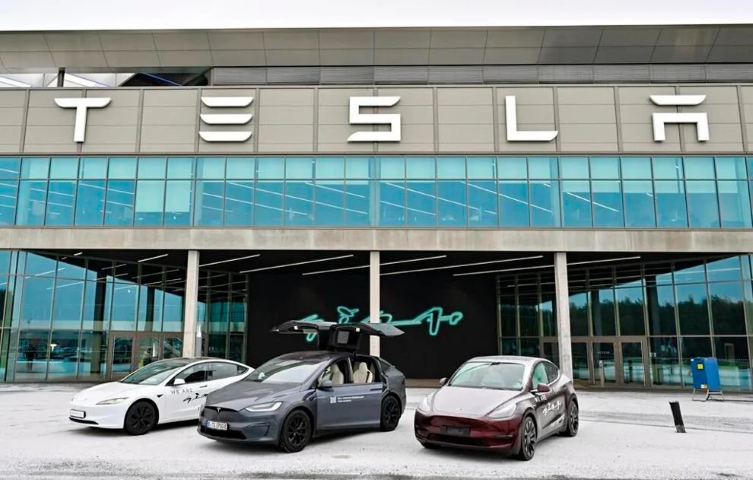
Tesla, in December, issued a recall for more than two million vehicles due to a defective self-driving feature implicated in fatal accidents, according to U.S. transportation authorities. Subsequently, the automaker rolled out a package of over-the-air software updates to enhance the functionality. The Tesla Gigafactory Berlin-Brandenburg plant is seen in Grunheide, Germany, Friday Jan. 12, 2024. THE CANADIAN PRESS/AP-dpa, Patrick Pleul
The traditional image of a stranded driver grappling with car issues on the side of the road may soon shift. Remote software updated in connected cars is rapidly advancing, allowing for potential fixes without a visit to the mechanic.
Known as over-the-air fixes, these updates enable remote adjustments to entertainment systems, navigation tools, and even critical safety features. Automotive experts suggest that this direction represents the future of the industry.
In a recent incident in December, Tesla recalled over two million vehicles due to a flawed self-driving feature linked to fatal accidents. However, the automaker swiftly addressed the issue by deploying a series of over-the-air software updates.
Dylan Khoo, an automotive analyst with ABI Research, emphasized the indispensability of software in modern vehicles. As software inevitably contains bugs, remote updates become imperative, he noted.
Remote upgrades operate akin to updates for smartphones or laptops, often scheduled for overnight installation without requiring active user engagement. Tesla pioneered this technology over a decade ago, significantly enhancing user experience.
Robert Falzon from Check Point Software Technologies lauded the convenience of over-the-air updates, eliminating the need for time-consuming visits to dealerships for software modifications.
Updates are encrypted, tailor-made for specific car models, and transmitted via servers for download to vehicles through Wi-Fi or cellular networks. Minor updates can install in as little as five minutes and are usually free for safety-related fixes.
While remote updates are not yet universal, several automakers, including BMW, Ford, and Tesla, have utilized them to address recalls. However, critical safety updates remain less common, and some manufacturers remain cautious due to potential malfunctions.
Despite the benefits, there have been instances of update failures, prompting concerns about functionality disruptions. For instance, a Ford Mach-E owner encountered a setback after an update rendered the vehicle inoperable, highlighting the need for careful implementation.
Electric vehicles (EVs) generally exhibit better adaptability to remote updates compared to traditional gas-powered cars, benefiting from simpler mechanical systems. However, challenges persist, with only a fraction of software-related recalls offering over-the-air fixes.
Despite the advancements, physical maintenance remains essential, particularly for tasks like oil changes and mechanical repairs.
Manufacturers have been hesitant to fully embrace subscription-based over-the-air updates, primarily due to unclear revenue models. While some brands like Tesla offer self-driving features through paid subscriptions, widespread adoption remains limited.
Looking ahead, the integration of software and hardware in vehicles poses new challenges in determining customer expectations and revenue models. As cars continue to evolve technologically, striking a balance between innovation and consumer satisfaction remains paramount.















